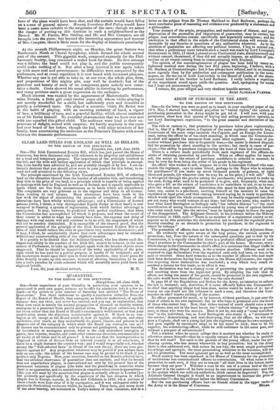At the seventh Philharmonic night, on Monday, the great feature
was Beethoven's Ninth or Choral Symphony, which formed the whole second part of the concert. This gigantic work, composed expressly for the Phil- harmonic Society, long remained a sealed book for them. Its first attempt was a failure; the band could not play it, and the public consequently could make nothing of it. But after a long interval it was again taken up with more zeal and perseverance: its difficulties were conquered by the performers, and at every repetition it is now heard with increased pleasure. Whether any one is yet able to take in, at one view, the whole plan, form, and proportions of this mighty pile, may well be doubted; but of the grandeur and beauty of each of its component parts nobody now enter- tains a doubt. Costa showed his usual ability in directing its performance, and many portions made a great impression on the audience.
Much interest was excited by the appearance of Mademoiselle Wilhel- mine Neruda, a little girl some twelve years old, whose violin-playing is not merely wonderful for a child, but sufficiently pure and beautiful to gratify a cultivated taste. She played a concerto which De Beriot was in the habit of playing, with an unerring certainty of hand, a vigour of bow, a brilliancy of tone, and a graceful facility, which almost reminded us of De Beriot himself. No youthful phsenomenon that we have ever met with has equalled this gifted child. The audience were loud in their ex- pressions of delight, mixed with surprise; for hardly anybody in the room had ever heard of her before, though she had, with other members of her family, been entertaining the audiences at the Princess's Theatre with music between the dramatic performances.


























 Previous page
Previous page